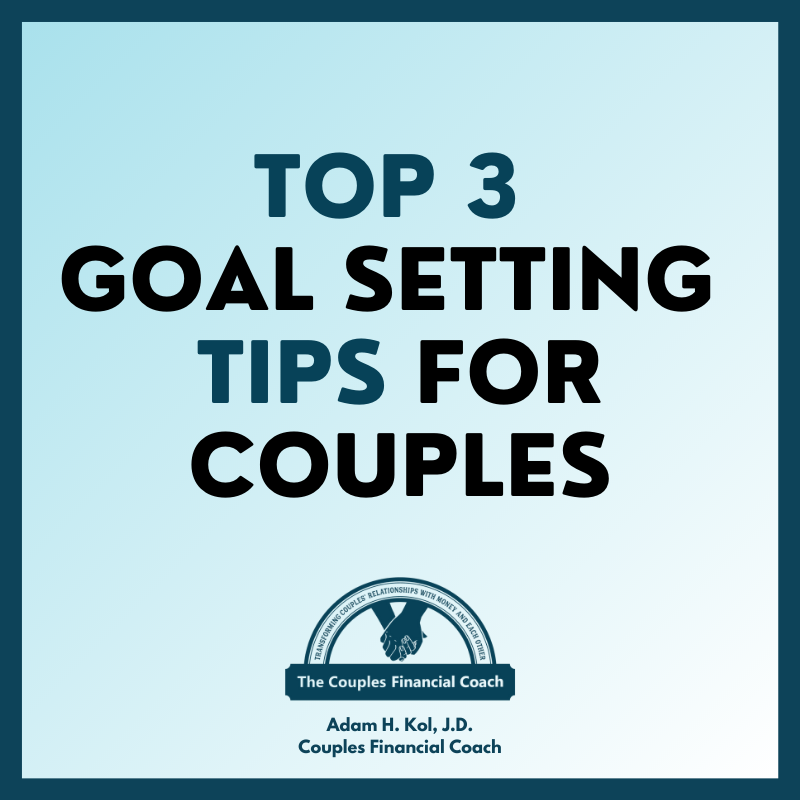How to Talk to your Wife or Husband About Living Within Your Means
I hear this all the time:
“My partner and I are living beyond our means. What can we do?”
You’ve probably heard a typical kind of answer from so-called financial experts. My answer may not be what you think...
So, you two make a certain amount of money. But, you're spending more than that or staying inches above the surface. You may have some debt, too.
This is extremely common. Well over half of US families live paycheck to paycheck. Consumer debt, AKA credit card debt, is everywhere. And there are many possible reasons why you're living beyond your means.
What can you do?
Step #1 is to connect with your partner, and actually open up about how this experience has been for you.
For most people, it's stressful. It creates anxiety, fear, worry. The key here is to own your feelings and take responsibility for your circumstances. Let me go more into that:
Owning your feelings looks like: “I’m scared.” Or, “I feel anxious.”
NOT: “You make me feel scared.” “You make me feel anxious.”
This will help them understand you and be less likely to trigger defensiveness.
Next is taking responsibility for your situation. This isn’t about morality or blame. It’s about acknowledging how your actions have contributed to that situation.
Here’s an example:
Let's say the situation has been not-so-great for 3 years. You haven’t budgeted in 5. You can say:
“I have been feeling anxious about our finances. It's been kind of like this for three years. We also haven't budgeted in 5 years, and I haven't done anything about that. I'm sorry about that. It’s caused me to feel some resentment and not as fully present. I don’t want to be that way, and you deserve better. I should have brought it up much sooner. So, I'm sorry.”
When you can take responsibility like that, they are less likely to see it as an attack. And it may open up a magical space with them.
This is about you owning what hasn’t been working so that you can move forward and have your best relationship.
This is a vulnerable and courageous act. Even with this approach, your partner may get defensive or reject you in some way. But it also often creates a powerful space for your partner to share. They may not share right away. But, it will open the door to deeper conversations.
The only thing worse than money issues is facing them alone, without your best friend’s support. But if you two are teammates, then that will make things much easier no matter the situation.
I've worked with couples who make a lot of money yet they struggle to talk about it. They’re stressed, bitter, resentful, and not working as a team.
If this is you, then the best thing you can do is go to your partner and be vulnerable. Open up to them. If they seem open, ask them: “How's it been for you? How much awareness have you had around all this? How has it been affecting your mood?” Give them a chance to share.
Remember: you don’t have to defend anything. It’s not about who is bad or good. Your goal is to have a great life and relationship. And the way you've handled your money hasn’t gotten you there. These conversations will help you change the story.
Once you’ve shared your challenges and how they’ve affected you, then you can make magic happen. By opening up, you’ll better understand yourselves AND each other. Now, you can dig in:
“Okay, what big things can we do to reduce the most stress?”
You may not fix everything overnight or at one time. That’s the logistics. You can figure this out with a coach or any number of online tools.
But the biggest thing is to invite your partner into your world and to see if they'll invite you into theirs. That way, you two can support each other through this process.
Even with money challenges, having your best friend on your side makes all the difference.
Want to level up your game around money in your relationship? My free quiz will help you learn your Couple’s Money Personality Type AND how you can grow from there!
Adam Kol is The Couples Financial Coach. He helps couples go from financial overwhelm or fighting to clarity, teamwork, and peace of mind.
Adam is a Certified Financial Therapist™, Certified Mediator, and Tax Attorney with a Duke Law degree and a Master's in Tax Law from NYU. He is a husband, dad, and musician, as well.
Adam's wisdom has been shared with The Wall Street Journal, the Baltimore Ravens, CNBC, NewsNation, and more.




